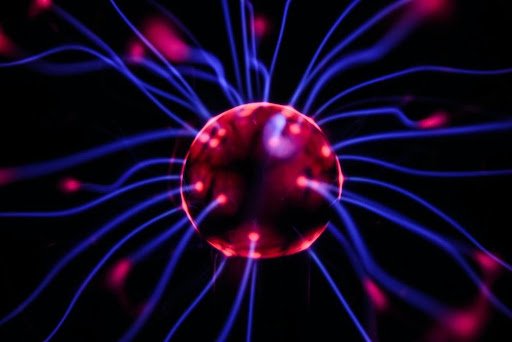With millions of people worldwide suffering from anxiety, sadness, and stress, mental health has become a major concern in today's fast-paced society.
A healthy gut is essential for sustaining excellent mental well-being, according to recent studies on the interesting relationship between our gut and brain.
As a result, probiotics—the good bacteria that support a balanced gut microbiota—have gained more attention. Probiotics have drawn interest because of their potential to improve mental health.
This article examines the complex relationship between the gut and the brain, the processes underlying probiotic action, and the evidence for probiotics' ability to reduce stress, anxiety, and depression.
The Gut-Brain Connection
The term "gut-brain connection" describes the two-way contact and communication between the brain and the digestive system. The two systems can communicate with one another and have an impact on one another's functionality thanks to a sophisticated network of biochemical signaling channels and neurological connections.
The gut microbiota, which is made up of billions of different microorganisms, is essential for preserving gut health. These microbes interact with the gut lining and generate a variety of compounds, such as metabolites and neurotransmitters that might affect mental health and behavior.
In the other direction, the brain can also communicate with the gut to influence its motility, secretion, and general function. Numerous mechanisms, such as the neurological system, the immunological system, and the release of hormones, assist in this relationship.
According to recent studies, abnormalities of the gut-brain axis may have a role in the emergence of mental health diseases like depression, anxiety, and stress-related disorders. Poor diet, ongoing stress, and the use of antibiotics are some of the factors that can harm the gut microbiota and upset the harmony of the gut-brain relationship.
Understanding the relationship between the gut and the brain has created new opportunities to investigate the potential use of probiotics and other therapies in enhancing mental health. Probiotics may support general well-being by balancing the gut-brain axis and altering the gut flora.
Probiotics and Mental Health
Live microorganisms known as probiotics, which are often bacteria or yeasts, have positive health effects when taken in sufficient quantities. The billions of bacteria that make up the gut microbiota are essential for maintaining gut health and general well-being.
According to research, the makeup and function of the gut microbiota can affect mental health and brain function. Anxiety, sadness, and diseases connected to stress have all been linked to imbalances in the gut flora.
Probiotics have drawn attention because they have the potential to improve mental health by supporting a balanced gut microbiome. By generating neurotransmitters, controlling inflammation, and influencing immunological response, probiotics may modify the gut-brain axis.
Probiotics have shown encouraging outcomes in clinical research when used to treat depression and anxiety symptoms. Certain probiotic bacteria, including Lactobacillus and Bifidobacterium, have been linked to advantages for mental health.
Probiotics can be eaten as supplements or by including foods like yogurt, kefir, and fermented vegetables in the diet. When adopting probiotics for mental health objectives, it is crucial to select the proper probiotic strains, take dosage suggestions into account, and speak with a healthcare provider. Additionally, it's a good idea to read a Benefiber review or similar product reviews to understand the experiences of others who have used these supplements to support their digestive health and overall well-being.
Specific Mental Health Conditions and Probiotics
Here are some particular medical issues and how probiotics can aid with symptom management for each:
Anxiety Disorders
According to research, probiotics may help to lessen the symptoms of anxiety. Probiotics may alter the synthesis of neurotransmitters and the signaling systems that control anxiety. In terms of lowering anxiety levels, some probiotic strains, like Lactobacillus rhamnosus and Bifidobacterium longum, have shown encouraging outcomes.
2. Depression
Researchers have looked into the potential antidepressant properties of probiotics. They might affect the synthesis of neurotransmitters that control mood, like serotonin and dopamine. Several strains, including Lactobacillus plantarum and Bifidobacterium breve, have shown promise in easing depression symptoms.
3. Stress and Cognitive Function
The risk of mental health disorders rise, and cognitive performance is significantly declines by chronic stress. Probiotics may lessen cognitive deficits brought on by stress. By controlling the release of stress hormones like cortisol, they can modify the stress response. Supplementing with probiotics has the potential to enhance memory and cognitive function.
4. Other Mental Health Conditions
Additionally, probiotics are being researched for their potential advantages in treating illnesses like schizophrenia, ADHD, and autism spectrum disorders. Probiotics may help certain illnesses' symptoms and general health, according to preliminary studies, but additional research is necessary.
While there is encouraging evidence about the potential advantages of probiotics for mental health, it's crucial to keep in mind that each person's response will be different. Before beginning any probiotic supplements for particular mental health disorders, it is vital that you speak with a healthcare provider.
Conclusion
Probiotics' impact on mental health and the gut-brain connection has created fresh perspectives on how to study and treat diseases, including anxiety, depression, and stress. According to research, probiotics may have a beneficial effect on the gut microbiota and gut-brain axis, potentially enhancing mental health.
Probiotics can potentially improve general psychological resilience and encourage better emotional balance. However, additional research is necessary to fully understand the mechanisms at work and to enhance probiotic therapies.















